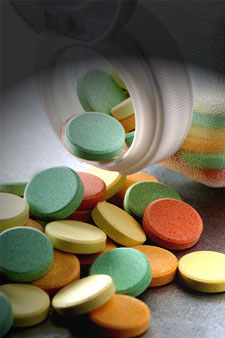Are you aware of the effects of antibiotics (antibacterials) during pregnancy? Have a quick look at the effects of some antibiotics during pregnancy. If you are diagnosed with bacterial infection during pregnancy, your doctor will treat you using antibiotics. He or she will prescribe the ones which are safe to be taken during pregnancy. The treatment will also depend on the stage of your pregnancy.
All antibiotics do not fall in the safe category and may harm the development of the foetus. Such antibiotics can also cause abnormalities in the foetus. At the same time taking over-the-counter medicines can also be risky for both baby and the mother. The effects of some antibiotics are also unknown during pregnancy. Therefore, you must only take the medicines which are prescribed by your doctor.
Effects of Antibiotics during Pregnancy
The effects of taking antibiotics during pregnancy completely depends on the type of antibiotic taken, the stage of pregnancy, the duration for which it is taken and the dose. As mentioned earlier, same antibiotics are deemed to be safe, whereas some can causes serious effects on the development of the foetus. Effects of some antibiotics are not even known. So, use of such antibiotics causing risk to the foetus should be completely avoided during pregnancy.
Have a quick look at the some of the antibiotics and their effects on pregnancy. Although, some of them are safe to be taken during pregnancy, they should not be consumed without an obstetrician’s consent.
Penicillins
Penicillins like amoxycillin, ampicillin, benzylpenicillin, carbenicillin, cloxacillin are safe during pregnancy.
| Products: | Ampicillin and Amoxycillin |
| For Children: | Safe |
| For Pregnant Women: | Safe |
| For Breastfeeding Mothers: | Safe |
| Contra-indications*: | --------- |
| Caution: | Periodic check of liver and kidney functioning |
Quinolones
Quinolones like nalidixic acid are considered safe during pregnancy. Flourinated quinolones like norfloxacin and ciprofloxicin are not considered safe during pregnancy.
| Products: | Norfloxacin and Ciprofloxacin |
| For Children: | Not recommended |
| For Pregnant Women: | Contra-indicated. Safety not established. |
| For Breastfeeding Mothers: | Use only if clearly indicated |
| Contra-indications*: | Renal impairment, history of epilepsy |
| Caution: | Monitor urinary output |
Sulphonamides
Sulphonamides may cause jaundice in babies during the first month of life by displacing bilirubin from plasma albumin. Sulphonamides should therefore be avoided as far as possible during the last month of pregnancy.
Tetracyclines
Tetracyclines, during the period of mineralisation of the child's teeth (the second and third trimester of pregnancy, the neonatal period and the first 8 years of life), may cause discolouration of teeth. Tetracyclines also accumulate in the growing skeleton. These products should be avoided.
Chloramphenicol
Chloramphenicol enter the foetal circulation and, if given to a mother shortly before labour, may cause 'grey baby syndrome', with cyanosis and hypothermia. Chloramphenicol treatment should therefore be avoided during the last week of pregnancy and during breastfeeding.
Trimethoprim
Trimethoprim may interfere with folic acid metabolism. Animal experiments have shown that administration of very high doses during the baby's organ development may give rise to birth defects typical of folic acid antagonism. If trimethoprim is taken during pregnancy, folic acid supplementation may be required.
| Products: | Co-trimoxazole (sulfamethoxazole and trimethuprim) |
| For Children: | Not recommended in infants below 6 weeks. Reduced dose in older children |
| For Pregnant Women: | May cause defects in the baby |
| For Breastfeeding Mothers: | Caution |
| Contra-indications*: | Renal and liver impairment |
| Caution: | Monitor urinary output |
*Not to be used in the conditions stated, because it could cause complications.
Now that you are aware of the effects of taking antibiotics for treating bacterial infection during pregnancy, you must make sure that you only take the ones which are prescribed by your obstetrician. Also, try to stay away from such infections during your pregnancy term.
Bacterial Vaginosis (BV) and Group B Strep (GBS) are common vaginal infections caused due to bacteria during pregnancy. Severe itching and increased vaginal discharge are the common signs of such infection. Depending on the stage of your pregnancy, your doctor may treat these infections and may also prescribe antibiotics. If such kinds of infections are not treated on time, they may give rise to complications during pregnancy. But with early intervention and right management, risks can be prevented. So, it is a must to follow a good vaginal hygiene to prevent these kinds of infections.






























